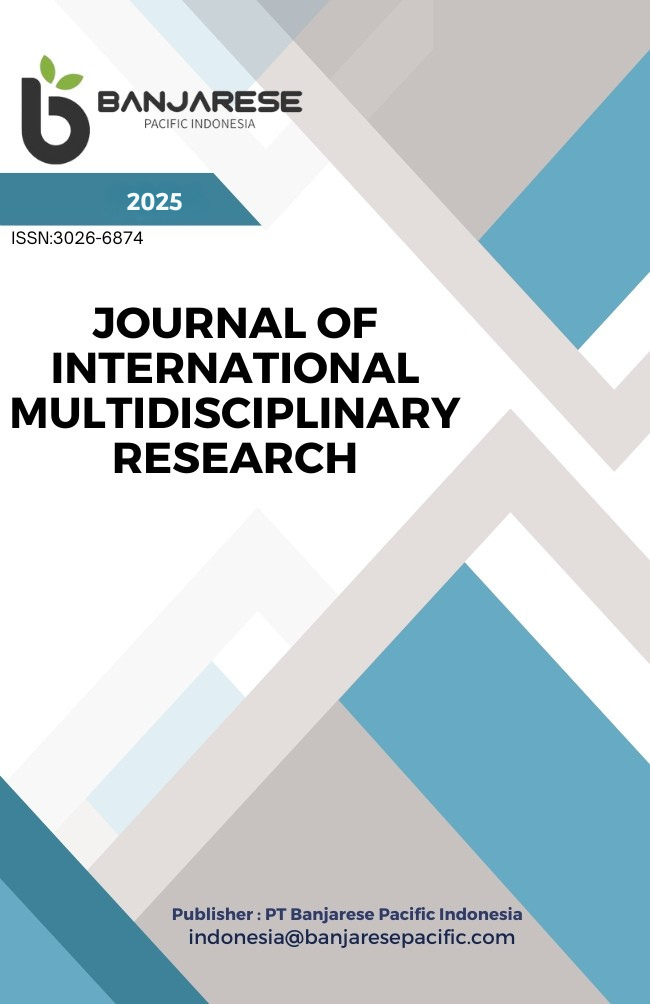Bibliometric Analysis on Islamic Entrepreneurship, Islamic Finance and Sustainable Development Goals (SDGs): Study Based on the Scopus Database
DOI:
https://doi.org/10.62504/jimr1286Keywords:
Islamic Entrepreneurship, Islamic Finance, Sustainable Development Goals (SDGs)Abstract
Objectives - Intellectual curiosity about Islamic entrepreneurship, Islamic finance and Sustainable Development Goals (SDGs) whose issues have increased recently in various sharia sectors. Design/Methodology/approach - Based on the scopus database, descriptive bibliometric analysis with the visualization tool VosViewer was used to assess 385 documents on Islamic entrepreneurship, Islamic Finance and SDGs, which peaked in 2024 based on the period of 2010-2024. Findings- This study found many articles on Islamic entrepreneurship, Islamic finance and the SDGs. According to this study, Malaysia is the country that publishes the most publications of this research compared to other countries. Then the University of Brunei Darussalam was the most prolific affiliate to publish articles on this. The history of article production growth that started from 2010-2024, continues to increase and peaks in 2024, with 55 documents and the lowest number of documents in 2010 with 10 published documents. This is increasing because there may be a need for sharia synergy to increase Islamic entrepreneurship in Islamic finance and sustainable development (SDGs). Romadoni, V as the most prolific writer about this research. Islamic entrepreneurship, Islamic finance and SDGs provide the potential for sustainable development and is in line with the goals of sharia, namely maqashid sharia for the benefit of the ummah, this encourages sustainable development (SDGs) through Islamic entrepreneurship and Islamic finance. Practical Implications - Research can be used as a useful research proposal for future researchers who use bibliometric methods in systematic literature review by introducing the network of various variables related to this research, then by getting to know famous authors in the field can provide opportunities to collaborate for further research. In addition, this study makes it easier for future researchers to be able to expand even more by looking at the variables obtained in this study as gaps to be researched further.
Downloads
References
Ahmed, H., & Aassouli, D. (2022). Entrepreneurial finance, agency problems and Islamic ethics: complementarities and constraints. Venture Capital, 24(1), 25–46. https://doi.org/10.1080/13691066.2022.2067017
Awan, M. S., Zahid, M., & Sabir, M. (2023). Islamic Microfinance: A Shariah-Compliant Tool for Poverty Alleviation and Social Welfare. Al-ISRA, 2(01), 44–66.
Billah, M. M., Hassan, R., Haron, R., Rosman, R., & Naba'Billah, A. (2024). Islamic Green Finance: A Research Companion. Taylor & Francis.
Burhanudin Harahap, T. R. and I. N. F. (2023). Islamic Law, Islamic Finance, and Sustainable Development Goals: Systematic Literature Review (2-21, Trans.). Copyright © Mdpi.Com/Journal/Sustainability.
Chiu, S., Newberger, R., & Paulson, A. (2005). Islamic finance in the United States. Society, 42(6), 64–68.
García-León, R., Martínez-Trinidad, J., & Campos-Silva, I. (2021). Historical Review on the Boriding Process using Bibliometric Analysis. Transactions of the Indian Institute of Metals, 74. https://doi.org/10.1007/s12666-020-02174-6
Hagawe, H. M., Mobarek, A., Hanuk, A., & Jamal, A. (2023). A unique business model for microfinance institution: the case of Assadaqaat Community Finance (ACF). Cogent Business and Management, 10(1). https://doi.org/10.1080/23311975.2022.2135202
Haron, R., & Siraj, M. A. (2024). Issues and Challenges of Sustainable Finance in the Islamic Capital Market. Islamic Finance and Sustainable Development, 195–208.
Hunjra, A. I., Arunachalam, M., & Hanif, M. (2024). The Role of Islamic Social Finance in Poverty Eradication. In Islamic Finance in the Modern Era (pp. 26–39). Routledge.
Hussein Kakembo, S., Abduh, M., & Pg Hj Md Salleh, P. M. H. A. (2021). Adopting Islamic microfinance as a mechanism of financing small and medium enterprises in Uganda. Journal of Small Business and Enterprise Development, 28(4), 537–552.
Ilias, S. (2009). Islamic finance: overview and policy concerns.
Khan, F., & Haneef, M. A. (2022). Religious responses to sustainable development goals: An islamic perspective. Journal of Islamic Monetary Economics and Finance, 8(2), 161–180.
Lukman Raimi, I. deniyi bdur-R. and S. folabi shafa. (2024). Does Islamic Sustainable Finance Support Sustainable Development Goals to Avert Financial Risk in the Management of Islamic Finance Products ? A Critical Literature Review. MDPI, 2.
María Isabel Esca lo na Fernández, P. L. B. P. G. (n.d.). Web of Science vs. SCOPUS: A Quantitative Study in Chemical Engineering.
Martínez-Falcó, J., Sánchez-García, E., Marco-Lajara, B., & Georgantzis, N. (2024). The interplay between competitive advantage and sustainability in the wine industry: a bibliometric and systematic review. In Discover Sustainability (Vol. 5, Issue 1). Springer Nature. https://doi.org/10.1007/s43621-024-00196-4
Mustafa Adli, Eng. and S. S. (2023). ICD-Lseg Islamic Finance Development Report.
Raimi, L., Adekunle, S. M., & Shabbir, M. S. (2023). Contemporary Discourse of Halal and Islamic Entrepreneurship. Springer.
Sholeh, M. M. A., Waston, Nirwana, A., & Mahmudulhassan, M. (2025). The Reasons of Lifelong Education for the Sustainable Development Goals (SDGs): the Islamic Epistimology Perspective. Journal of Lifestyle and SDG'S Review, 5(2). https://doi.org/10.47172/2965-730X.SDGsReview.v5.n02.pe02988
Uzochukwu, B. S., Okeke, C. C., Ogwezi, J., Emunemu, B., Onibon, F., Ebenso, B., Mirzoev, T., & Mir, G. (2021). Exploring the drivers of ethnic and religious exclusion from public services in Nigeria: implications for sustainable development goal 10. International Journal of Sociology and Social Policy, 41(5/6), 561–583.
Wu, H., Feng, Z., Sun, T., Li, R., & Zhao, H. (2024). Efficiency, sustainability, and resilience a trifecta for a green economic recovery through natural resource markets. Resources Policy, 88, 104435. https://doi.org/https://doi.org/10.1016/j.resourpol.2023.104435
Yasin, A. A., Salikin, A. D., Jaelani, A., & Setyawan, E. (2023). Sustainability Of Muslim Family Livelihoods In The Perspective Of Sustainable Development Goals. International Journal Of Humanities Education and Social Sciences, 2(6).
Yasmeen, K. (2024). Framework for Islamic social entrepreneurship. Journal of Islamic Accounting and Business Research, ahead-of-print. https://doi.org/10.1108/JIABR-08-2023-0256
Zaib, S. Z. M., Abdullah, A., Yasin, N. H. M., Abdullah, S. S., & Azmi, N. F. B. (2021). Motivations Aspect for the Adoption of Islamic Financing Among Halal Entrepreneurs in Malaysia. In A. B., H. A., & E. I. (Eds.), International Conference on Business and Technology, ICBT 2020: Vol. 194 LNNS (pp. 1410–1419). Springer Science and Business Media Deutschland GmbH. https://doi.org/10.1007/978-3-030-69221-6_105
Downloads
Published
Issue
Section
License
Copyright (c) 2025 Neni Hardiati Tresna (Author)

This work is licensed under a Creative Commons Attribution-ShareAlike 4.0 International License.













